🌍 Frontier Markets News, September 26th 2025
A weekly review of key news from global growth markets

Africa
DRC eases cobalt restrictions
The Democratic Republic of Congo will lift its seven-month cobalt export ban next month, replacing it with a quota regime, the FT reports. Under the new rules, shipments will be capped at 18,125 metric tonnes for the remainder of 2025 and 96,600 tonnes per year in 2026–27.
Authorities say the shift is intended to curb oversupply, stabilize prices and promote value-added processing at home. Major producers, including China’s CMOC and Glencore, which mines cobalt in DRC, stand to benefit if the move successfully supports prices.
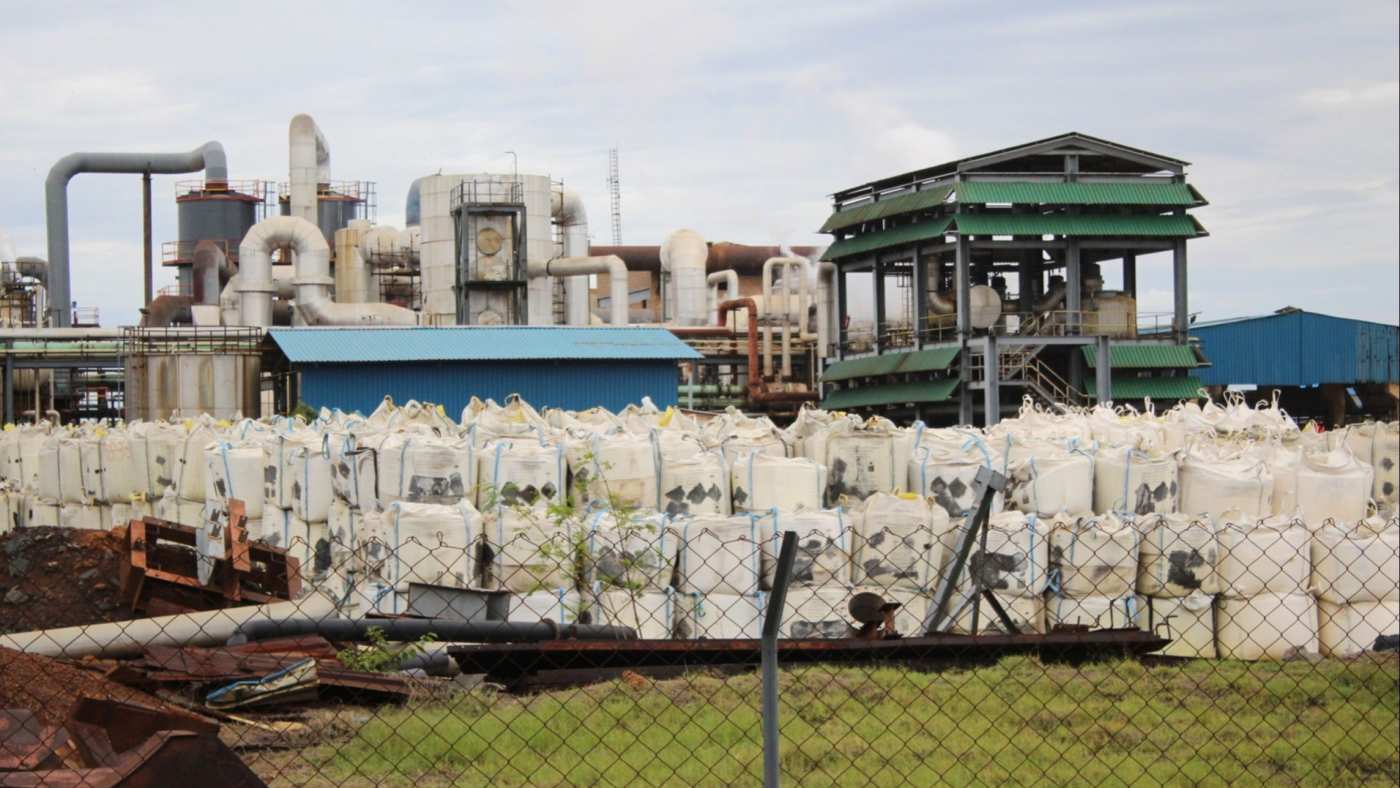
Western buyers are also eyeing the new supply, particularly the US, whose brokering of a ceasefire between Rwanda-backed rebels and government forces appeared to be a quid looking for a mineral pro quo. On Monday, DRC President Felix Tshisekedi said the ceasefire plan hadn’t calmed the fighting but that he still hoped to sign a strategic partnership with the US relating to energy infrastructure, mining and mineral refining, the East African reports.
Kinshasa is signaling it won’t be “managed” by any single partner, in line with a continent-wide push to reclaim pricing power. Mali’s junta just inked seven new mining deals under a revised code to raise the state take, while Botswana keeps turning the screws on De Beers.
Guinea opens presidency to coup leaders
Voters in Guinea this week overwhelmingly supported a referendum on creating a new constitution that would enable the leaders of the 2021 coup to run for office, DW reports. Almost 90% of voters backed the new constitution, which also stretches presidential terms to seven years, renewable once, and creates a Senate.
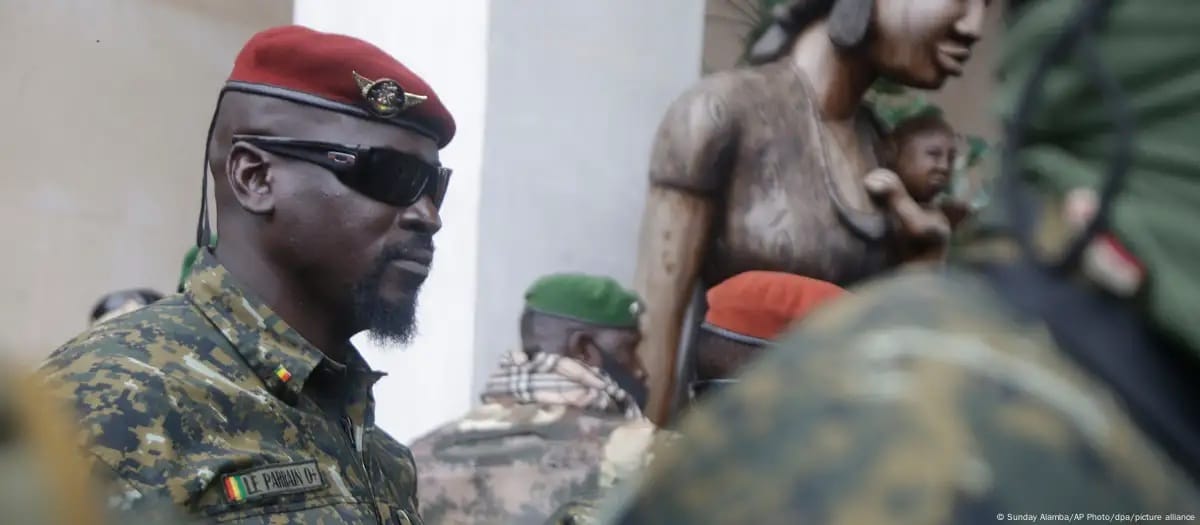
Opposition groups have claimed the vote was not free or transparent, and the result remains provisional pending court validation. The country’s three main opposition parties were banned a few weeks before the election and opponents of the constitutional change were widely silenced by the incumbent government.
- Malawi’s ex-president wins election by a landside (Al Jazeera)
Chad this week also approved a constitutional change that extends the president’s term to seven years and scraps term limits entirely, RFI reports. And Uganda’s 81-year-old Yoweri Museveni—in power since 1986—has been cleared to run again in 2026 after earlier removals of age and term limits. Cameroon’s nonagenarian Paul Biya is set for an October vote widely expected to keep him in power.
Angola considers extending novel debt swap
Angola is considering renewing a novel swap mechanism from JP Morgan that could help it trim debt servicing costs. Luanda must decide by November whether to extend a one-year deal it struck with the bank in December 2024 that enabled it to secure $1 billion in cash secured by $1.9 billion of privately issued Eurobonds as collateral. Angola is currently paying a sub-9% financing rate—slightly cheaper than its 10% Eurobond rate.
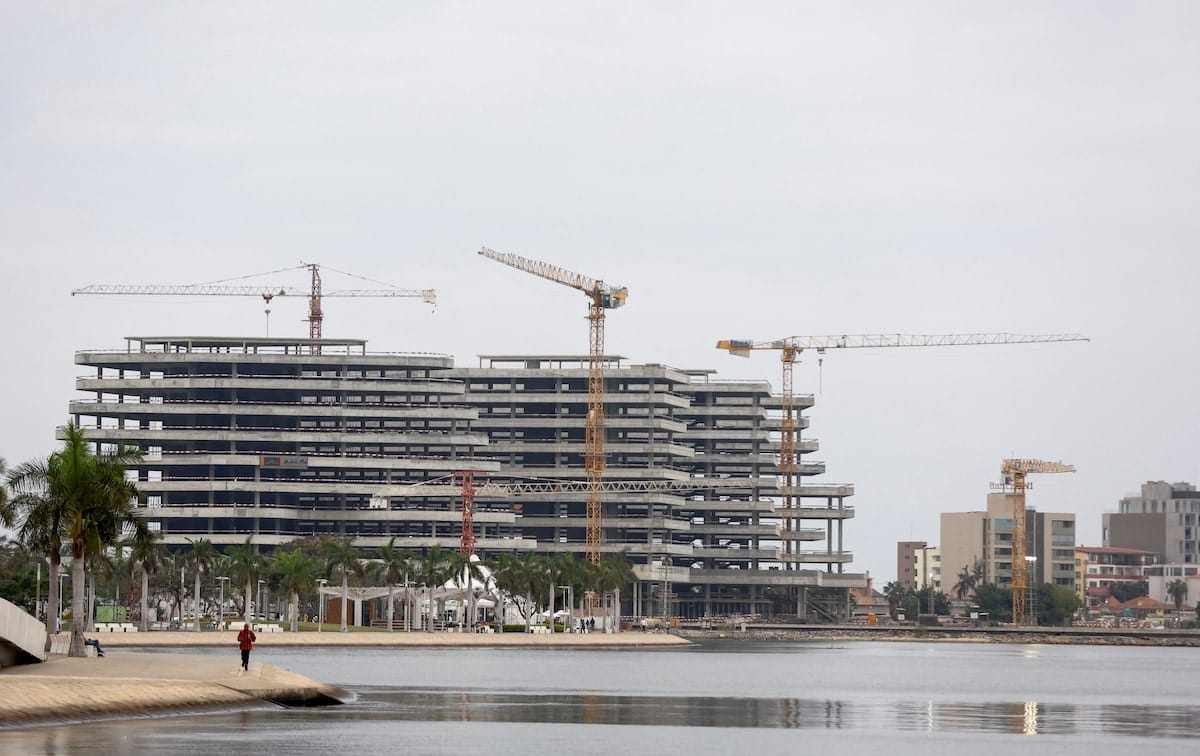
The structure is risky for Angola: If the bonds lose value, the country has to repay the debt or stump up additional collateral in cash. When the April 2025 fall in oil prices triggered a slump in Angola’s bonds JPMorgan issued a $200 million margin call. Prices later rose and the $200m was returned, but the episode underscored how oil volatility can exacerbate liquidity risk even as drilling rebounds.
Angola’s debt stands near 60% of GDP, including $860 million owed on a Eurobond due in November. Servicing its debt will cost more than $10 billion this year.
Asia
Pakistan deepens ties with Trump administration
Pakistan’s Prime Minister Shehbaz Sharif and the head of its army, Asim Munir, met US President Donald Trump at the White House on Thursday for a closed-door meeting about trade and international relations, AP reports.
Sharif is the first Pakistani prime minister to meet the US president since 2019. According to Pakistan government reports, the two men this week also discussed geopolitical issues and potential strategies to end the war in Gaza.
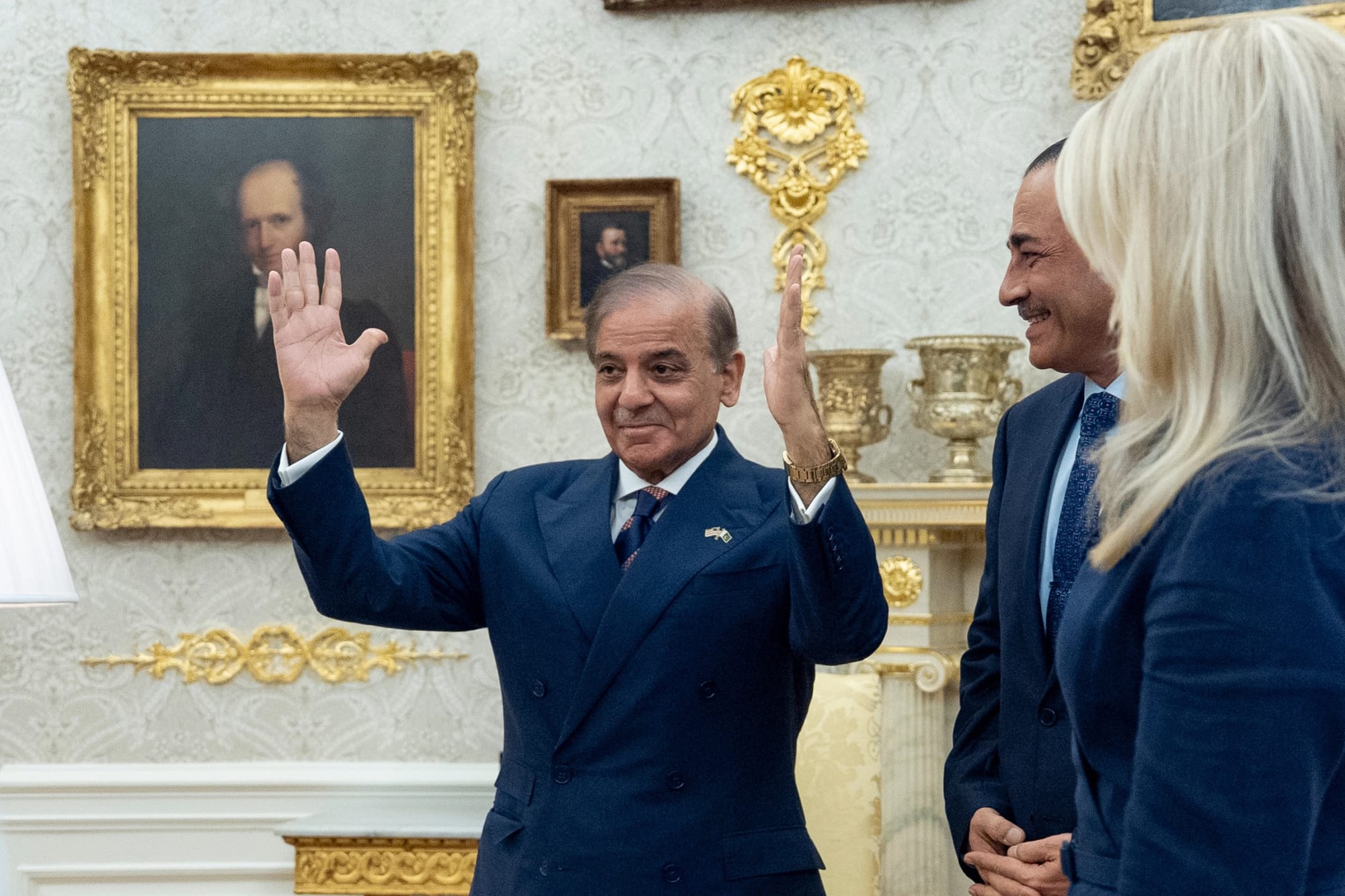
Sharif’s meeting with Trump comes as relations continue to warm between their two countries—and ties between Trump and Indian Prime Minister Narendra Modi fray. Trump hosted Munir twice over the summer, and the US signed a deal with Pakistan in July that exchanged oil exploration for tariff relief.
The following month, an American critical minerals company agreed to invest $500 million in Pakistan, although questions remain over how the South Asian nation will benefit from the potential deal.
Vietnam seeks trade deal with EU as US tariffs bite
Vietnam is at risk of losing a fifth of its exports to the US due to tariffs, according to a report released on Monday by the UN Development Program. In a worst-case scenario, the tariffs could cost Vietnam some $25 billion—equivalent to 5% of GDP—in lost export revenue, making it the most vulnerable country in Southeast Asia, the UN warned.
- Vietnam guides dong lower as US tariffs threaten exports (Bloomberg)
- Indonesia signs free trade deals with EU, Canada (Euronews, Politico)
Vietnam’s trade surplus with the rest of the world has widened in recent years as more firms choose to set up shop there rather than China. That’s caused exasperation not just in Washington but in Brussels, where EU negotiators have hatched a plan to push Vietnam on easing access to European goods, Reuters reports.
In meetings with Vietnamese officials this week, EU trade commissioner Maros Sefcovic discussed removing trade barriers on European food, pharmaceutical, and automotive products.
Middle East
Saudi reforms bear fruit
Saudi Arabian shares surged this week after the capital markets authority (CMA) announced plans to ease the 49% foreign ownership cap on local equities, Reuters reports. The move is part of a broader effort by Riyadh to inject more liquidity into its financial markets that could bring an additional $9-10 billion of passive inflows into the local stock market.
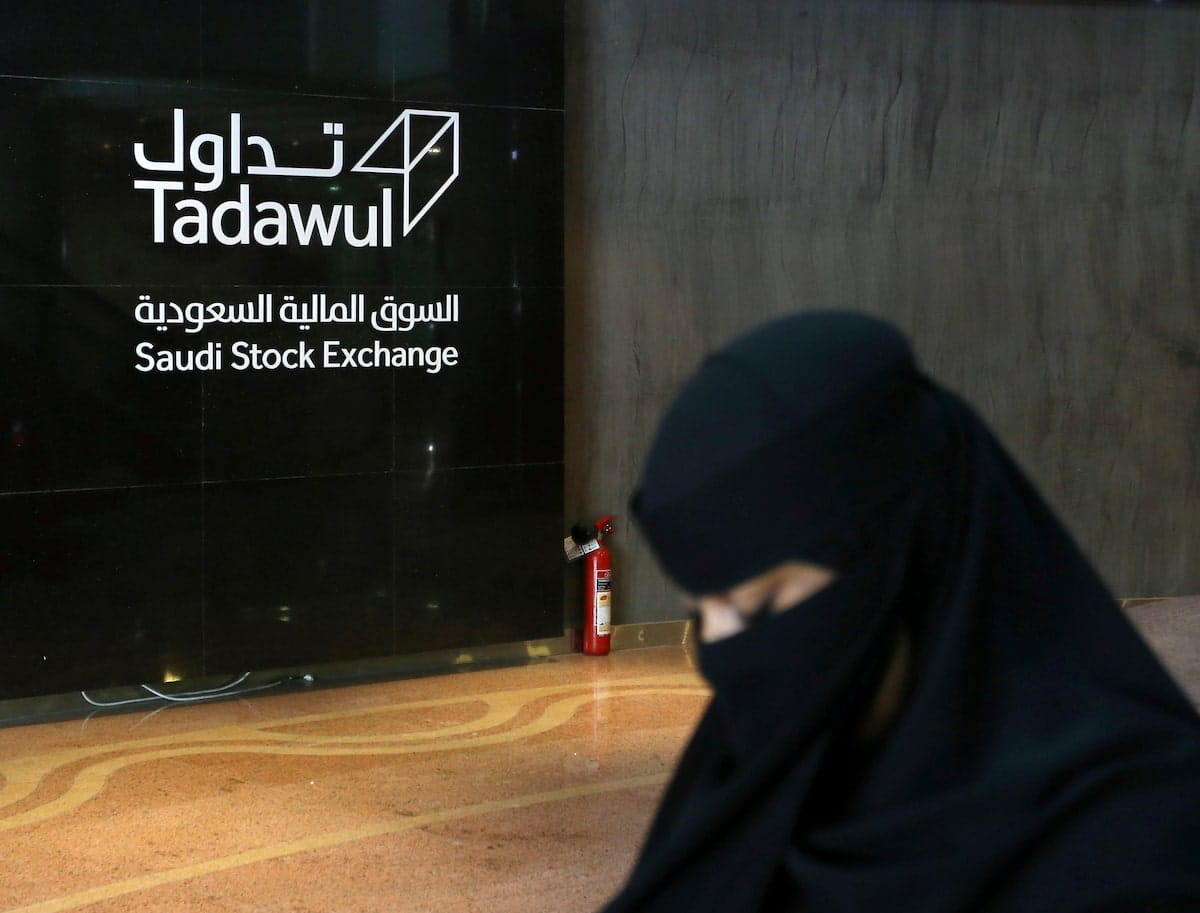
Heavy buying sent the Saudi benchmark stock index up 5.1% on Wednesday, the highest one-day gain since 2020, breathing new life into the index that had fallen some 9.6% so far this year due to concerns about chronically low oil prices. Small and medium sized enterprises could be the biggest beneficiaries of the move.
- Saudi PIF finalizes $2 billion purchase of media giant MBC (Semafor)
Mortgage reforms undertaken earlier this year have also boosted the real estate market, with residential real estate values in Riyadh soaring 63% in the first half of this year. The price jumps have raised concerns about affordability, prompting a freeze on rent increases in Riyadh.
Syria returns to the world stage
Syria’s President Ahmed al-Sharaa used an historic visit to New York this week to urge the lifting of all remaining sanctions on his country, AP reports. The first Syrian leader in almost 60 years to address the UN General Assembly, Al-Sharaa said scrapping sanctions would enable Syria to reintegrate into the world economy and “reclaim…its rightful place among the nations of the world.”
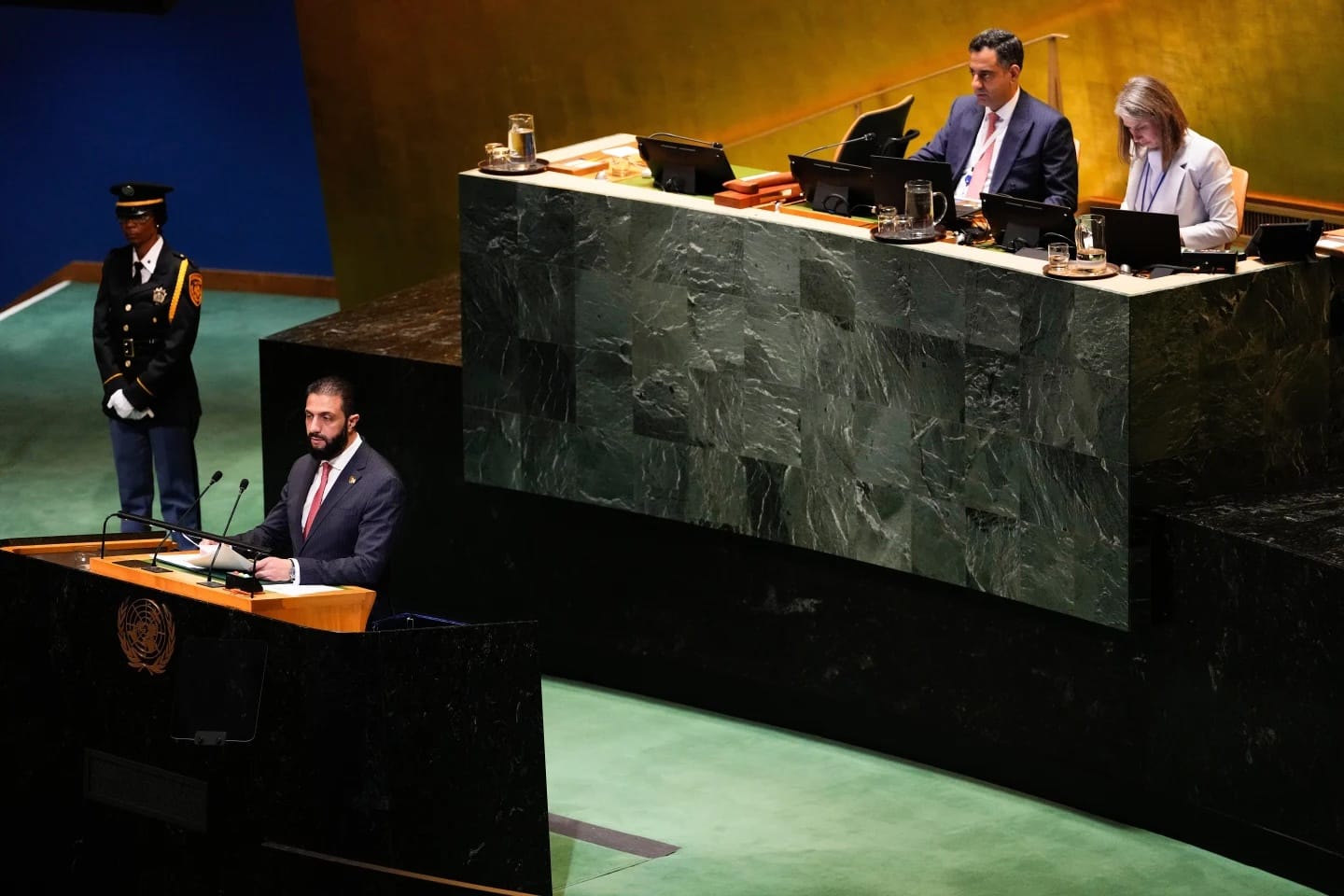
Al-Sharaa also joined a remarkable discussion with former head of the CIA, General David Petraeus, who had once arrested al-Sharaa in his earlier days as an Al-Qaeda militant in Iraq. During the interview, al-Sharaa spoke of the progress made on stabilizing Syria and addressing sectarian violence, and of Syria’s normalization of relations with its Arab neighbors.
On the question of relations with Israel, al-Sharaa argued that whilst Israel has acted as an aggressor towards the new government, it is nevertheless working on achieving some form of an agreement on disengagement through talks held via US-mediated security channels.
Europe
Trump ups pressure on Turkey over Russian oil
US President Donald Trump this week ramped up pressure on his Turkish counterpart Recep Tayyip Erdoğan to stop buying oil from Russia. After the two met in the White House on Thursday Trump suggested the US would soon lift sanctions on Turkey, which would allow Ankara to buy F-35 fighter jets, if it stops buying Russian oil.
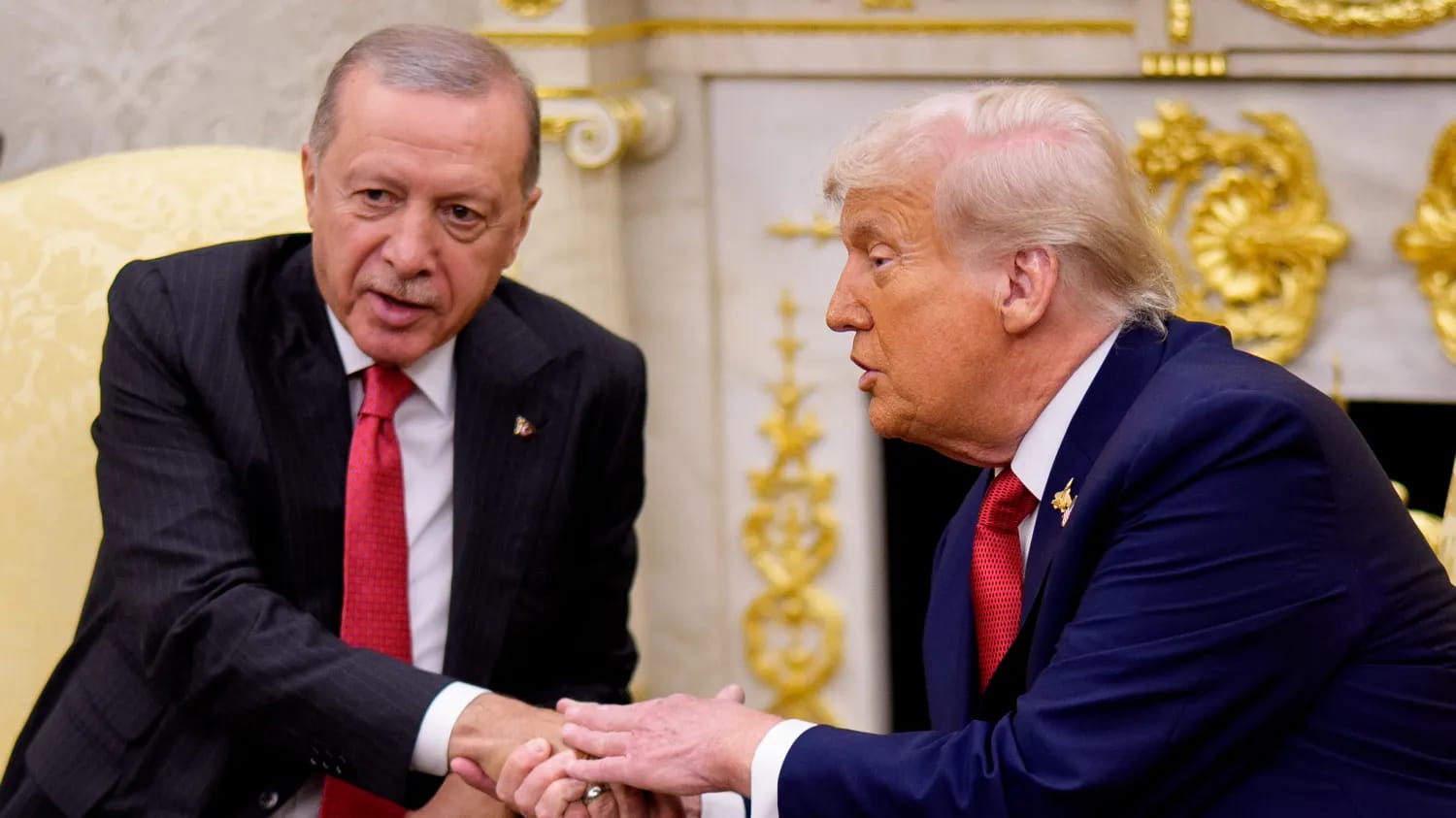
Turkey, along with Hungary and Slovakia, is a leading European buyer of Russian oil. Trump hopes the deal will cut off some of Moscow’s war funding.
Earlier in the week Turkey’s state energy company BOTAS, struck a 20-year deal to buy 4 billion cubic meters per year of gas from the US starting in 2026. Russia is currently Turkey’s largest gas supplier but its roughly 16 billion cubic meters supply deals are set to expire this year.
Moldova sees increasing interference in parliamentary election
Russia appears to be stepping up its efforts to influence the outcome of Moldova’s parliamentary election this weekend, The Record reports. According to Moldovan officials and Western researchers Russia has been paying Moldovans to post propaganda on social media promoting the Russia-backed opposition coalition and attacking the incumbent Moldovan ruling party.
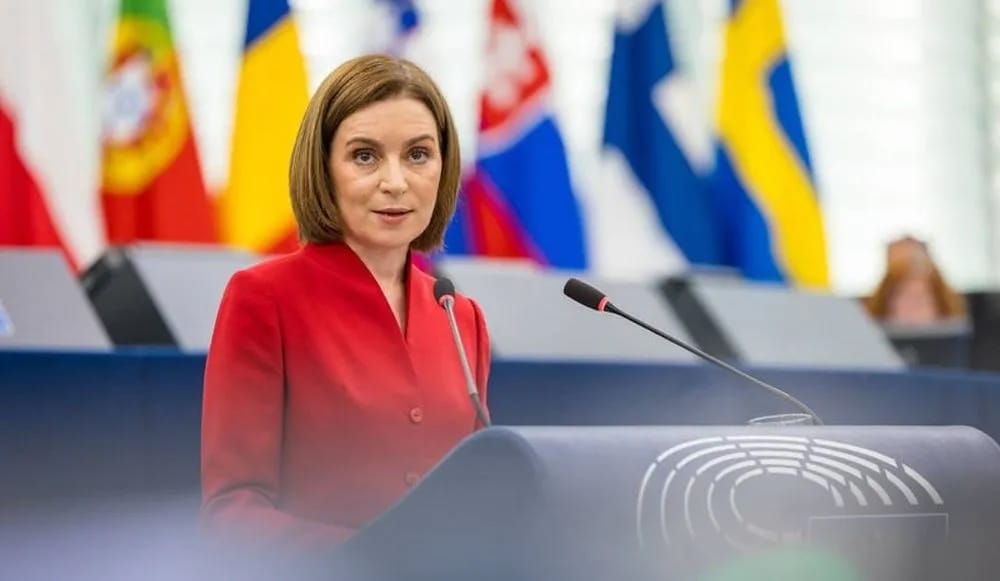
The election could determine whether the former Soviet republic will continue to pursue EU membership or veer back toward the Kremlin. If the ruling Party of Action and Solidarity fails to win a majority it would need to create a coalition, reducing the likelihood that it could continue to drive the country toward European integration, Reuters reports.
- Widespread poverty feeds anti-Western narrative in Moldova election (Radio Free Europe)
- Fugitive tycoon lands in Moldova after being extradited (Reuters)
Successive governments in Moldova have seen success in boosting economic growth. Since 2014, the country’s GDP per capita has doubled and the unemployment rate halved, but a recent economic downturn has hurt support for the ruling party.
Europe’s first rare earth magnets plant opens in Estonia
Neo Performance Materials, a Canadian company, opened Europe’s first rare earth magnet manufacturing facility in Narva, Estonia last week. The new facility will help European countries reduce their reliance on China for magnets used in electric vehicles, wind turbines, warplanes and other advanced technology products.
The demand for rare earth magnets is predicted to triple over the next decade and currently around 90% of Europe’s supply comes from China. The Narva facility’s initial annual production capacity of 2,000 metric tons of magnet blocks is enough to support the production of more than one million electric vehicles per year.
Latin America
Argentina’s US bailout restores stability, but market confidence remains shaky
Argentina’s markets staged a sharp rebound this week after Washington pledged “large and forceful” support for President Javier Milei. The peso recovered nearly 10% and bonds rallied, reversing losses triggered by Milei’s shock local election defeat, a corruption scandal, and heavy central bank intervention that drained more than $1billion in reserves in just three days.
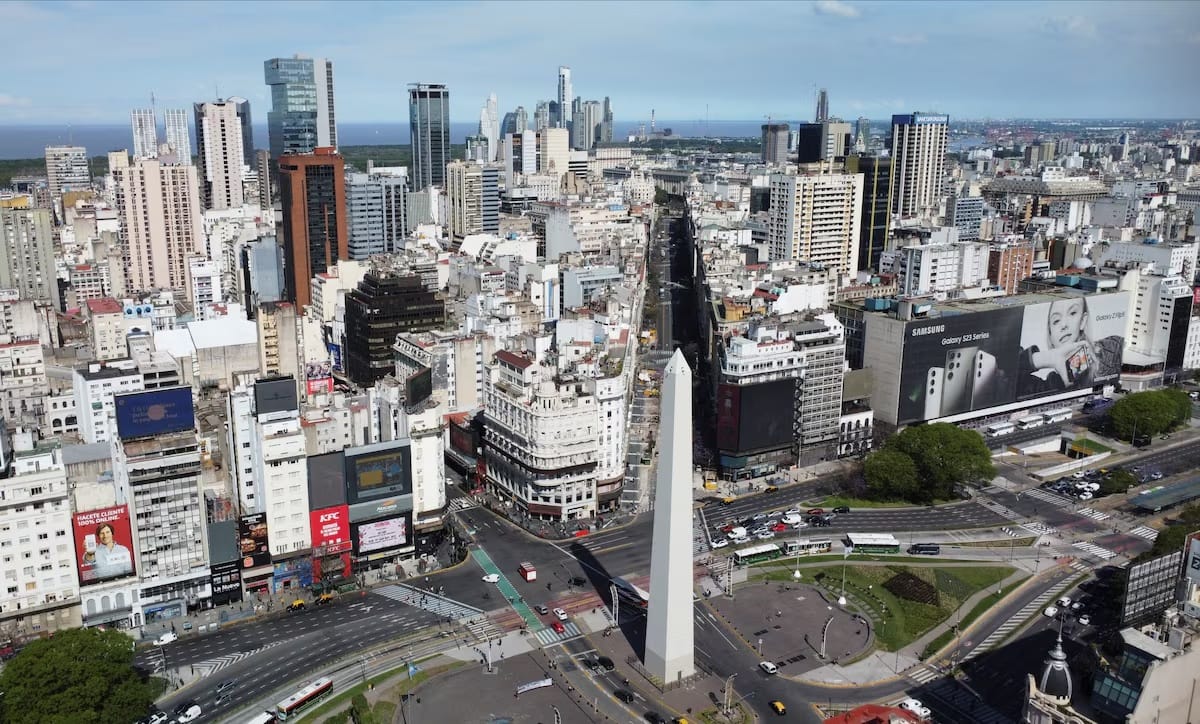
But the relief may be fleeting. Milei’s strategy of defending an overvalued peso while slashing spending has stabilized inflation but left reserves perilously low and growth weak. The contradiction came into full view as investors questioned whether his government can sustain its currency band through October’s midterms.
The Trump administration’s intervention via the Treasury’s Exchange Stabilization Fund echoes Argentina’s previous bailouts. Without deeper political coalition-building and a clearer monetary path, Milei risks repeating Mauricio Macri’s fate. After Macri received early applause for reforms, investor confidence collapsed and official money ended up covering the exit of skittish investors.
Venezuela loses control of national oil company
A US judge has cleared the way for creditors to seize Citgo Petroleum, Venezuela’s crown jewel abroad, Reuters reports. The ruling, which affirmed the validity of bonds issued by Citgo’s then-parent company, state-owned PDVSA, accelerates a Delaware auction where bidders led by Amber Energy and Gold Reserve are vying for control of the Houston refiner.
For Caracas, the outcome marks the effective loss of a critical foreign asset after years of defaults, sanctions and court battles. Even if the sale resolves some claims, the proceeds fall short of Venezuela’s total obligations, leaving bondholders and expropriated companies competing for scraps.
Ecuadorian cocoa economy set to surge
Ecuador is on track to surpass Ghana as the world’s No. 2 cocoa producer by 2027, with output projected above 650,000 tons, Reuters reports. Farmers in the South American nation are reinvesting windfalls from last year’s record prices, aided by higher farmgate returns than peers in West Africa.
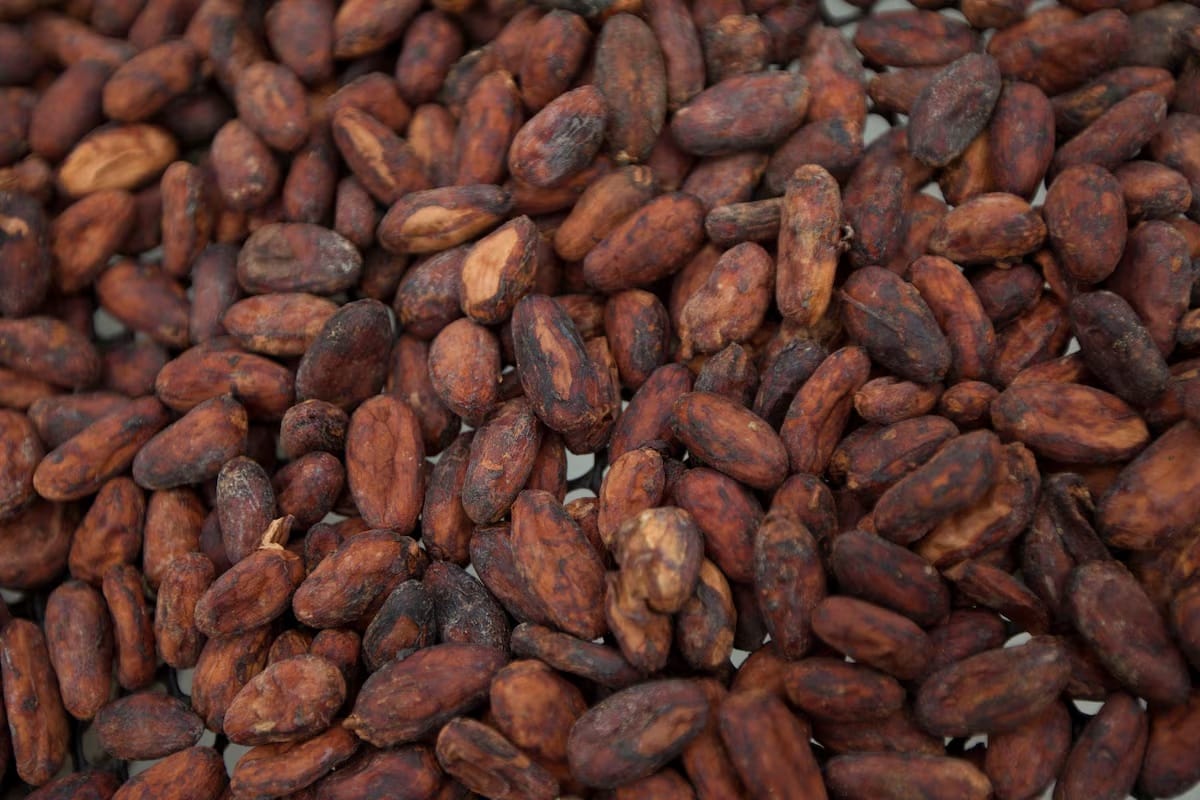
With a robust agroforestry model that boosts yields while curbing disease risks, Ecuador is seeing its cocoa output growing steadily, putting it in an ideal position to benefit both from growing global demand and increasingly strained supplies from West Africa.
What We’re Reading
Nigeria central bank cuts key rate for first time since 2020 (Reuters)
Mali, Burkina Faso and Niger to quit International Criminal Court (Reuters)
Mozambique renews Rwandan military partnership as Cabo Delgado insurgency escalates (African Security Analysis)
Zambia wins $120mn World Bank grant to expand 4G & 5G (African News Agency)
UK’s Savannah Energy to invest $65mn for stake in African hydro assets (Renewables Now)
Looming end of US-Africa trade deal set to hit continent’s exporters (FT)
US firm to sell Kazakhstan 300 locomotives in $4.2bn deal (US Department of Commerce)
Malaysia and Indonesia accelerate carbon capture and storage programs (Nikkei)
Strong baht looms over Thailand’s new PM (Nikkei)
Hundreds arrested in Philippine anticorruption protests (OCCRP)
Papua New Guinea stirs China’s ire with proposed Australia defense pact (FT)
Gold price surge leaves Mongolia’s miners in the dust (Nikkei)
How war and drought have resulted in Lebanon’s worst water crisis in decades (Arab News)
PWC slashes thousands of Middle East staff following fallout from Saudi contract ban (FT)
US raises pressure on European nations to stop buying Russian oil (NYT)
Foreign defense companies localize weapons production in Ukraine (Ukraine MoD)
EU plans to unlock €550mn for Hungary to secure Russian energy sanctions (FT)
Russia to raise VAT to 22% as war weighs on economy (FT)
Trinidad and Tobago at a crossroads as oil runs out (The Guardian)
Panama’s president faces resistance to reform plans (NACLA)
Ecuador’s electoral council approves referendum on foreign military bases (AP)
UK wants closer trade ties with Argentina and Brazil (Mercopress)
OPEC Fund approves over $1bn in development aid (Opec Fund)
We are committed to providing FMN readers with a free weekly digest of politically unbiased, succinct and clear news and information from frontier and small emerging markets.
Please consider becoming a paid supporter to help cover some of our costs and support our continued development of sharp markets-focused coverage and new informational products. Paid subscribers will also gain exclusive access to our quarterly EM/FM report that aggregates EM insights from 25 major banks, international institutions and consultancies.





